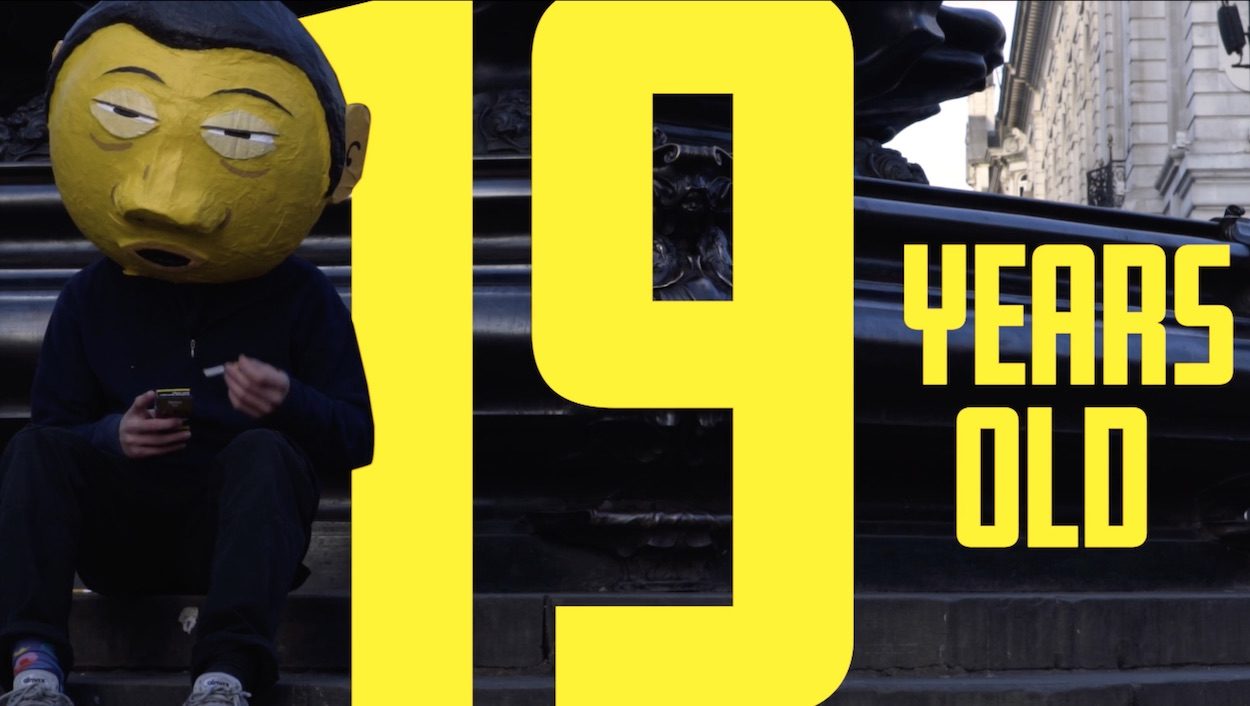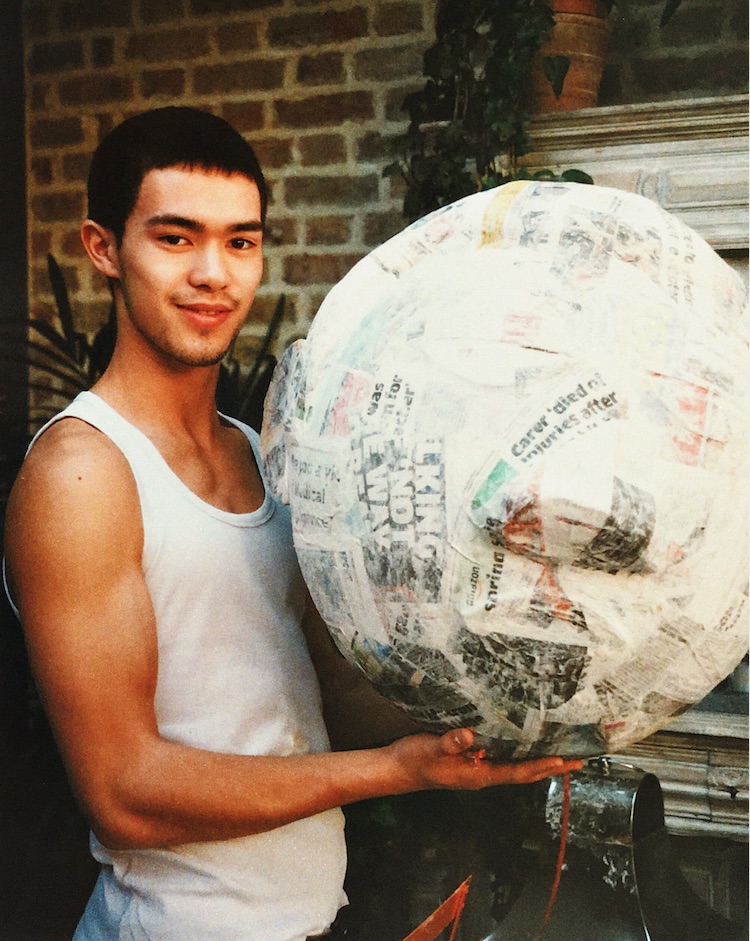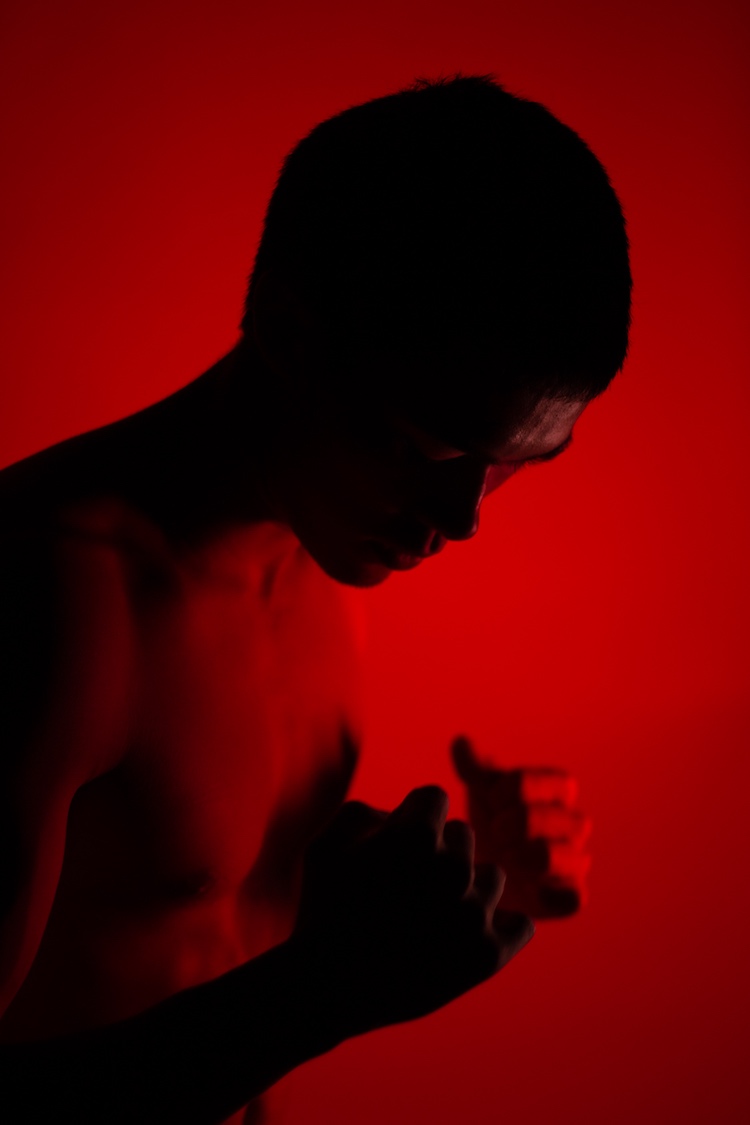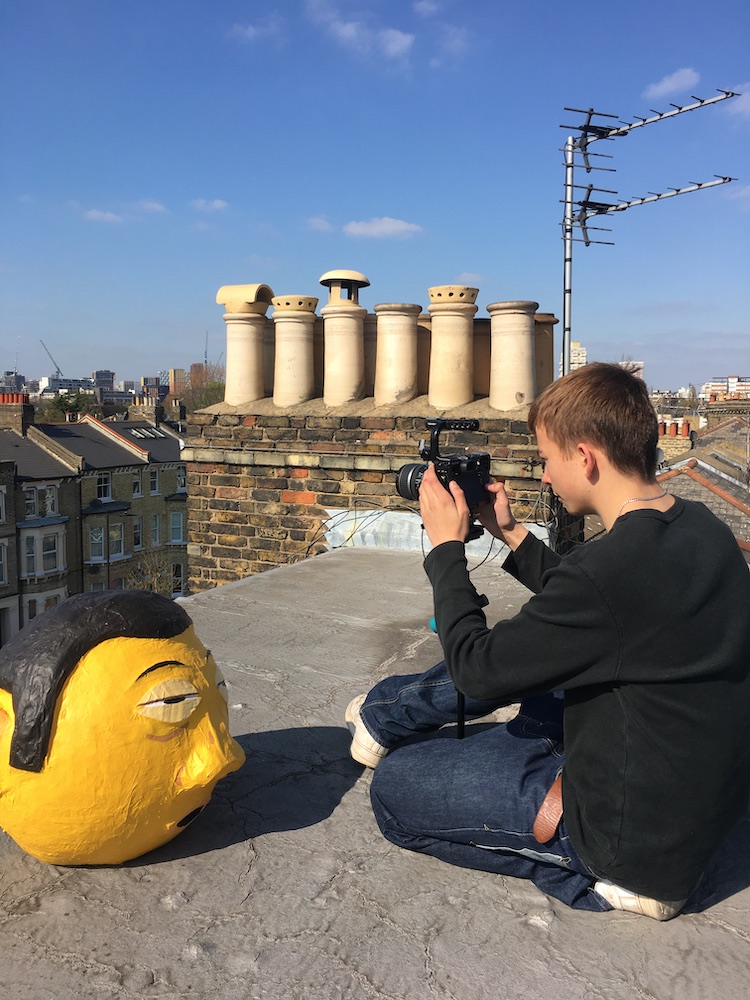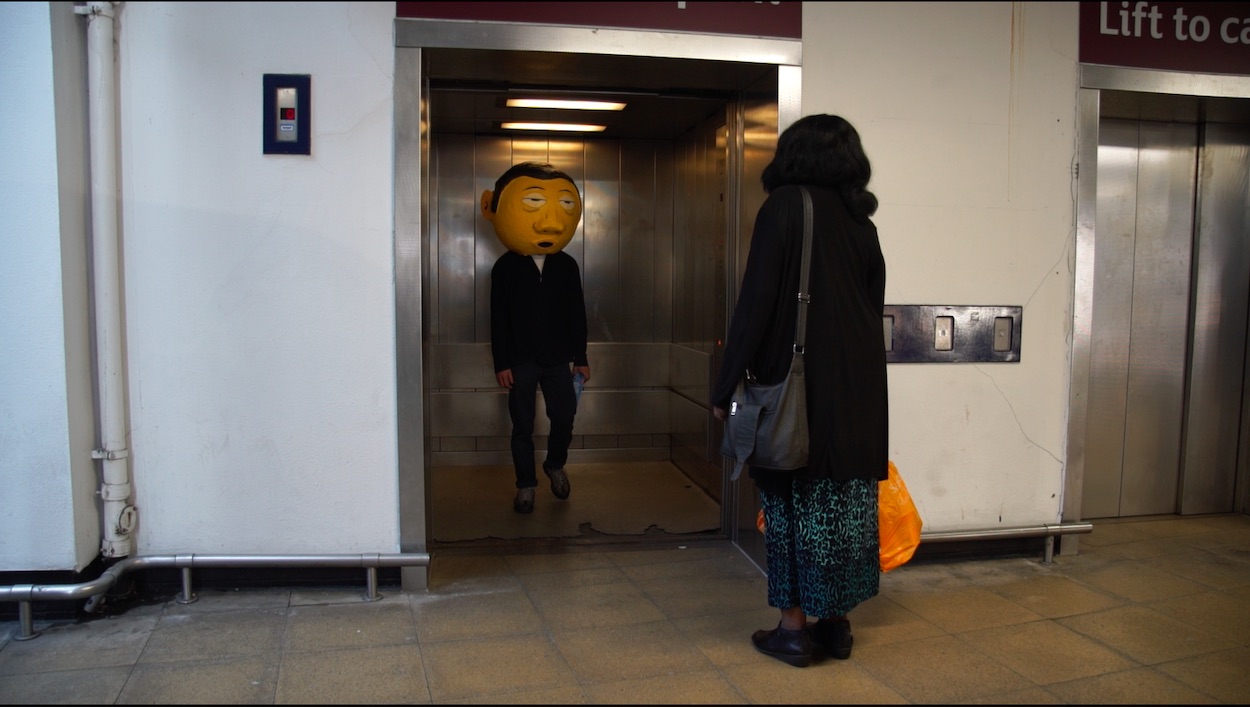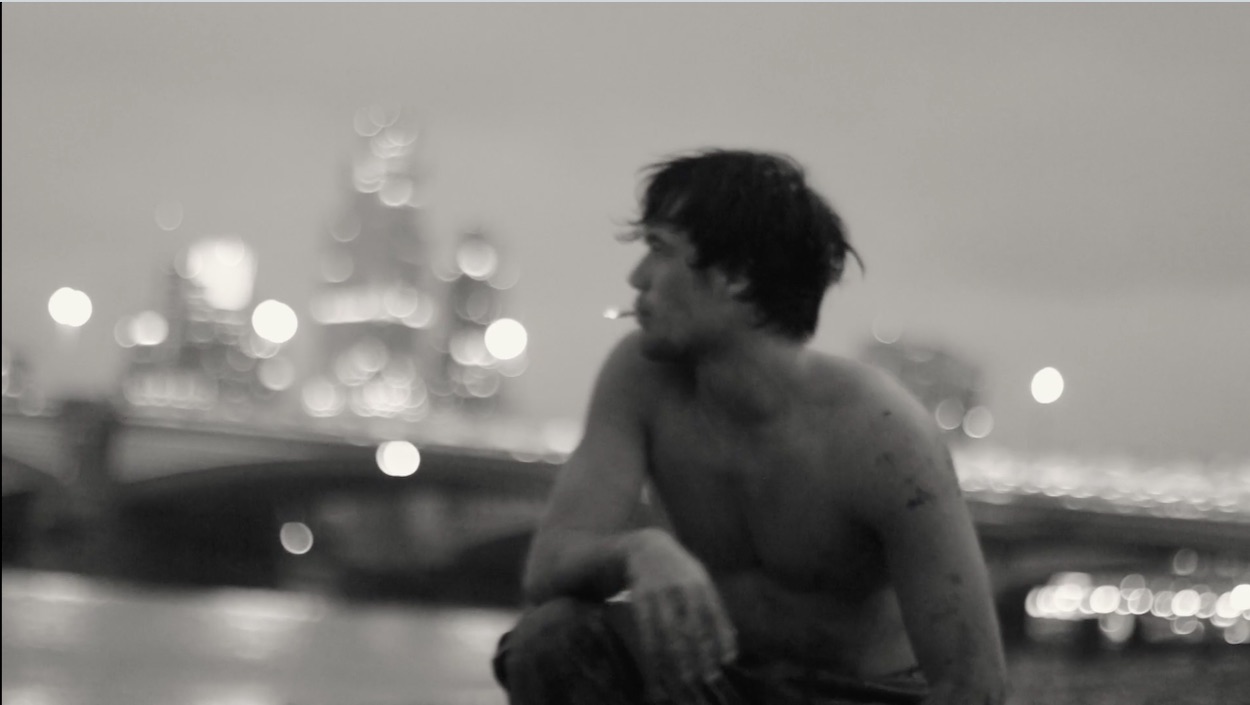Sky Yang
What inspired you to set up This Is Our Youth [TIOY] and how did you meet?
There were a few reasons for it, but most simply, we wanted to make films in a non-traditional way. Making films for film’s sake. A lot of our friends are brilliant artists in different areas, and we realised by pooling our skills together we could make some passionate and (hopefully) cool stuff. Also, a lot of young stories in the mainstream media don’t get told from an authentically young perspective, and many of the stories that need to be told by young people just aren’t covered. The stories we see are often romanticised, and the artists who are influencing and working on those projects are established professionals, but not from the worlds that they’re trying to represent. We wanted to see what would happen if we brought young, fresh and exciting creatives together who want to make work that stays true to their voices.
We went to the same school, but never talked loads as we were in different years. We really got talking together on the bus after Ben released some of his films. I couldn’t believe how good they were – and how good he was able to get things to look on absolutely no budget. We talked about films we loved, how they shot things and film analysis videos like Every Frame A Painting and Channel Criswell. We decided that we really wanted to work together on something. A few years later it got to happen with Sunny.
Sky Yang (Still by Ben Bainbridge)
The first project out of TIOY, Sunny, explores the struggles of a British-born Chinese boy towards accepting his heritage and culture, against a backdrop of racism and prejudice fuelled by the coronavirus crisis. It feels like an intensely personal piece – how much of an autobiographical stance did you take on the project?
The poem that narrates the piece was originally based on a different poem called ‘Made In Anger’ that I wrote. ‘Made In Anger’ was very much from my perspective, raging about all the things I never knew or was never told, all the questions I had about why I was feeling the way I was; it was very much a rhyming stream of consciousness that was a provocation as much to myself as it was to the world around me. I then wrote Sunny, to distance the work a little from myself. The feelings and thoughts were the same, only the narrative had changed. One line from ‘Made In Anger’ sticks with me, and I think was passed into Sunny through both the mask and the sentiment of the film as a whole: ‘Now can you understand why I don’t like yellow that much?’
Feeling-wise, absolutely it’s autobiographical. But the truth is that everyday racism and micro-aggressions are something that have been happening way before coronavirus – the virus has just really allowed what was already there to come more to the surface. There are some small symbols in the piece that came from an autobiographical point of view: for example, when Sunny watches the Tank Man in Tiananmen Square, that was drawing on the first play I ever saw with East Asian actors in, Chimerica at the Almeida, which is centred around the story and mystery of the Tank Man. That being said, Sunny’s thoughts were mine during a particular time of my life. They captured what it was like a couple years ago, when I first started to become truly aware of my race.
You put the film together with ‘a balloon, papier mache, a lot of passion and a Sony A7’ – what sort of budget and timeframe were you working to?
We shot over 3 days and 2 nights last summer. We funded it ourselves – everything we did was very DIY, searching for and creating cheap solutions to replicate expensive techniques and equipment. The crew mainly consisted of Sky and myself, so we were able to really improvise and experiment with all sorts of ideas. Location-wise we were very fortunate. The majority of the project was shot in places we already had access to, which really suited the tone of film. These were spaces that we could really immerse ourselves in, allowing us to enter the world we were creating. This meant we could keep the budget under £100 while also working very freely, improvising and experimenting as we went.
Ben Bainbridge
Tell us a bit about how the film came together, from the initial idea to the final cut, and what the biggest challenges were.
Once Sunny was written as a final piece, we started to break down what we could viably do that would visually match the text.
Sky then built the mask. The mask’s expression remains the same throughout the film, however Sky’s incredible performance says everything, Sunny’s emotions are trapped, suppressed under the mask, something we wanted the audience to experience, from his point of view.
The poem is told in the third person, but from Sunny’s point of view. We wanted the film to do the same, entering Sunny’s head, showing the world what Sunny sees, the feelings Sunny feels, and bringing that world out of him, communicating the experience that he lives. We wanted the audience to enter Sunny’s world.
The film is very psychological. To communicate Sunny’s experience we focussed on his emotions, something which really underlies the narrative. We used locations and cinematography to reflect Sunny’s mind. Loneliness is a key emotion which swallows Sunny, and interiors such as his flat allowed us to communicate this: always alone, empty, dark, cold and blue. Also exteriors: by showing Sunny in well-known spaces that you would expect to be bustling with life and people, but he is depicted alone. In terms of cinematography, we wanted everything within frame to be very simple: using close-ups to intimately get into the ‘busyness’ of his head; anger, rage, confusion and frustration, and wides to initially emphasise loneliness and, later, the peace which comes with pride. Lighting allowed us to really play with the locations we were in, creating spaces which reflected spaces in his head.
In the editing process, the most difficult thing was being sure of how we wanted to frame the story. We ended up toying with a lot of different ways of doing it, even potentially having it as an interview-based piece, and the character of Sunny being interviewed as to why he started wearing the mask. But it didn’t feel right. In the end, we went back to where it all started – the poem.
Sunny
What’s the response been like so far, both from the east Asian community and more generally?
The response from people has been incredible. We just want more people to see the piece who need to see it. I think it’s really resonated with the British East and South East Asian community, of course, and it’s been so beautiful to see people feeling like Sunny as a piece has verbalised and physicalised what they have gone through as a person of Asian descent. I’m so grateful to everyone who reached out to express their own connections to the piece. But also, I think and hope that it’s resonated with anyone who feels ‘other’ too, which can be all of us. We like to sort things into labels and boxes because it’s neat and works for a minority of people, but sometimes we just don’t fit into them. That’s definitely part of what Sunny goes through, and part of the reason we wanted to use a mask. Obviously it’s centred around the British East Asian / South East Asian experience, but anybody could be under [the mask].
White privilege has been a huge talking point in the wake of the Black Lives Matter movement, but it’s rarely in the context of east Asian / south east Asian communities. Is this something you hope to shine a light on via the film?
If I’m honest, it was never my intention to focus on white privilege, or to ‘check people’s privileges’ so to speak – but that being said, in a time where we’re all trying to educate and learn, I know it’s made people question and become introspective about how they have regarded and treated South East / East Asians. So often, this is a something that gets completely overlooked. It’s something that I often used to think when people were racist to me – it’s not racist if you’re only Chinese – so don’t make a thing of it. There’s so little published and seen out there about racism against Asians, and so few of these stories are told, yet they’re happening every day.
Kernel
What is TIOY working on next?
We’ve got a few interesting projects lined up. We just released Kernel, a beautiful visual meditation made by Jamie Flatters and Benjamin Bainbridge, which I really recommend taking the time to watch. And we’re currently editing a film called Love They Neighbour, a psychological thriller about two friends who begin to question their reality and test whether they are living within a simulation. It’s a story about friendship, distrust and mental wellness, and is based on events that unfolded over quarantine.
We have a bunch of other fun projects planned, including a librarian taking MDMA as a coping mechanism, and a utopian drama loosely based on Scandinavian prison systems. We hope you guys enjoy everything that’s to come!
Interview by Selena Schleh
@thisisouryouthco
@benhbainbridge
@skyyang_
